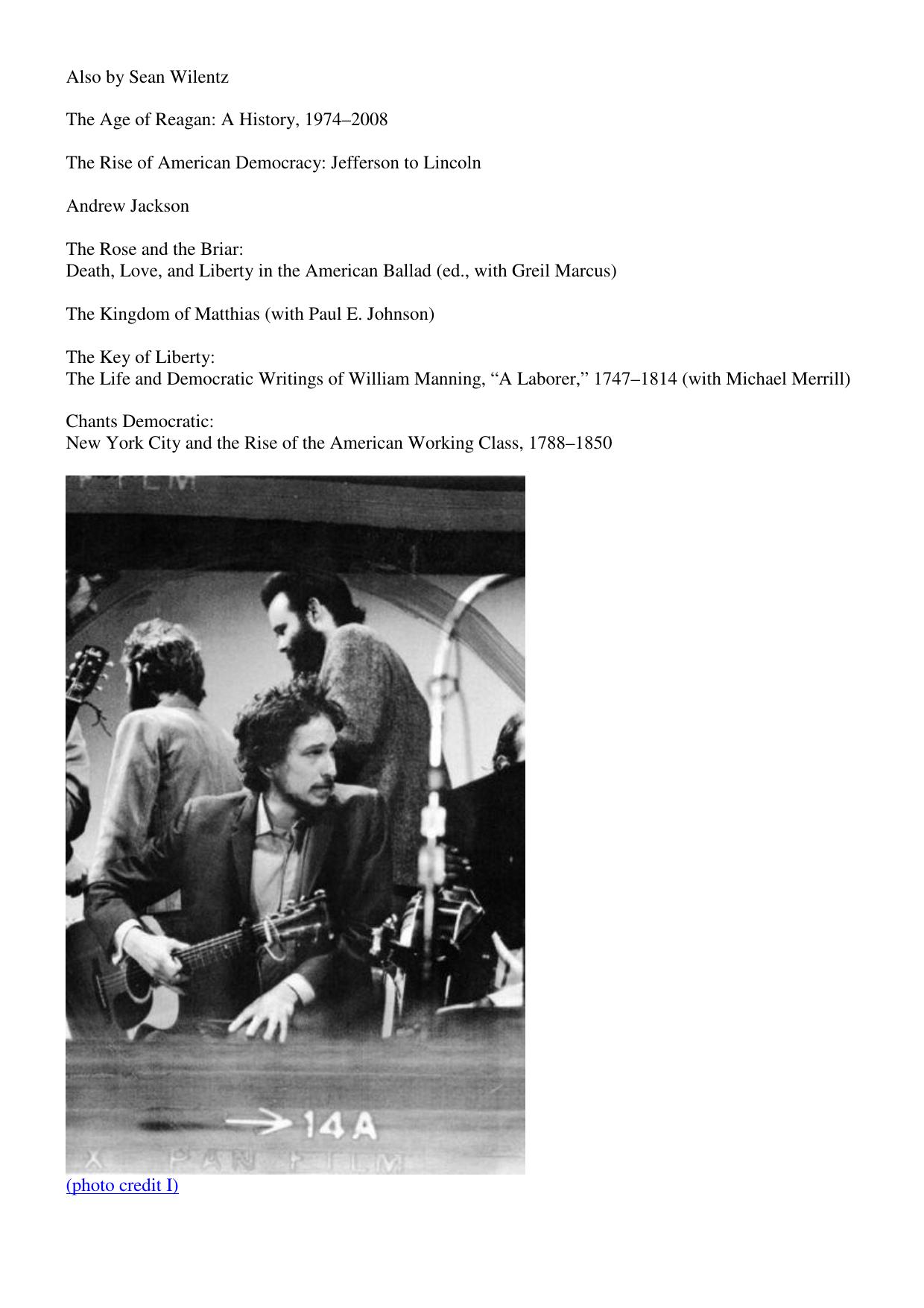Bob Dylan In America by Sean Wilentz

Author:Sean Wilentz [Wilentz, Sean]
Language: eng
Format: epub, pdf
ISBN: 978-0-385-52989-1
Publisher: Knopf Doubleday Publishing Group
Published: 2010-03-25T16:00:00+00:00
Although McTell could playact the folklore historian, he was, as Dylan would later be, a musical modernist with strong roots in traditional forms. Here and there McTell tipped his hat to older blues musicians. His partiality to the twelve-string guitar was in keeping with the Atlanta blues associated with Barbecue Bob. But McTell was beholden to no particular performance or composing style (including that of his far less melodious Atlanta friends), and he excelled in numerous genres, including amalgamated genres of his own devising. It is misleading, in fact, to think of McTell narrowly as a blues musician. Like some other southern singers of his time—including Blind Blake, Mance Lipscomb, Leadbelly, Mississippi John Hurt, and (among whites) Charlie Poole and Jimmie Rodgers—McTell is better described as a songster. Working in a tradition, indebted to minstrelsy, that dated back to the vagabond musicians of the Reconstruction years, the songsters mastered all kinds of popular forms, from spirituals to the latest hits from Tin Pan Alley. They certainly played the blues, in part because the blues were popular, and in part because the name became attached, in the 1920s, to most black music that was not labeled jazz. But the songsters did not define themselves as bluesmen.
McTell was one of the geniuses of the blues-singing songster style, a well-traveled performer who provided his customers and the record companies with what they wanted, but also an artist who made his own brilliant musical innovations. And unlike most of the songsters, McTell, from the very start of his professional career, was a city entertainer who heard every conceivable sort of music and sang to all sorts of people. At the simplest level, he was adept at rewriting blues standards and thoroughly transforming them, in seemingly endless variation. Thus, the old slide-guitar standby “Po’ Boy” served as the foundation for one of McTell’s most startling early songs—and most beautifully performed recordings—“Mama, ’Tain’t Long Fo’ Day.” (The song is also notable for its vivid imagery, one of McTell’s other strong points, in lines like “The big star fallin’, mama, ’tain’t long fo’ day.”) But “Po’ Boy” also inspired the music for two other, very different McTell songs, “Three Women Blues” and “Love Changing Blues.” Alternatively, McTell might play an entirely different melody, then jump to one of the blues standards—as in his semi-talking blues narrative “Travelin’ Blues,” where a rapid virtuoso accompaniment suddenly gives way, for one verse, to “Po’ Boy.” The inventiveness and spontaneity of McTell’s rearrangements required exceptional dexterity, mental and physical, but it also required his songster’s mastery of numerous popular forms, including vaudeville hokum (with its spoken repartee), jug band romps, ragtime, country folk songs, modern spirituals, and pop songs.
McTell was a sponge—the word would later be applied to Dylan—who soaked up every kind of music he heard and then expressed it in his own way. Although not always punctilious about giving due credit, McTell made no bones about being a borrower, while he also insisted upon his musical integrity. “I jump
Download
Bob Dylan In America by Sean Wilentz.epub
Bob Dylan In America by Sean Wilentz.pdf
This site does not store any files on its server. We only index and link to content provided by other sites. Please contact the content providers to delete copyright contents if any and email us, we'll remove relevant links or contents immediately.
| Classical | Country & Folk |
| Heavy Metal | Jazz |
| Pop | Punk |
| Rap & Hip-Hop | Rhythm & Blues |
| Rock |
Cecilia; Or, Memoirs of an Heiress — Volume 2 by Fanny Burney(31956)
Cecilia; Or, Memoirs of an Heiress — Volume 3 by Fanny Burney(31942)
Fanny Burney by Claire Harman(26603)
We're Going to Need More Wine by Gabrielle Union(19046)
Plagued by Fire by Paul Hendrickson(17413)
All the Missing Girls by Megan Miranda(16031)
Cat's cradle by Kurt Vonnegut(15359)
For the Love of Europe by Rick Steves(14121)
Bombshells: Glamour Girls of a Lifetime by Sullivan Steve(14077)
Leonardo da Vinci by Walter Isaacson(13337)
4 3 2 1: A Novel by Paul Auster(12393)
The remains of the day by Kazuo Ishiguro(9000)
Adultolescence by Gabbie Hanna(8927)
Note to Self by Connor Franta(7671)
Diary of a Player by Brad Paisley(7581)
Giovanni's Room by James Baldwin(7347)
What Does This Button Do? by Bruce Dickinson(6207)
Ego Is the Enemy by Ryan Holiday(5450)
Born a Crime by Trevor Noah(5383)
